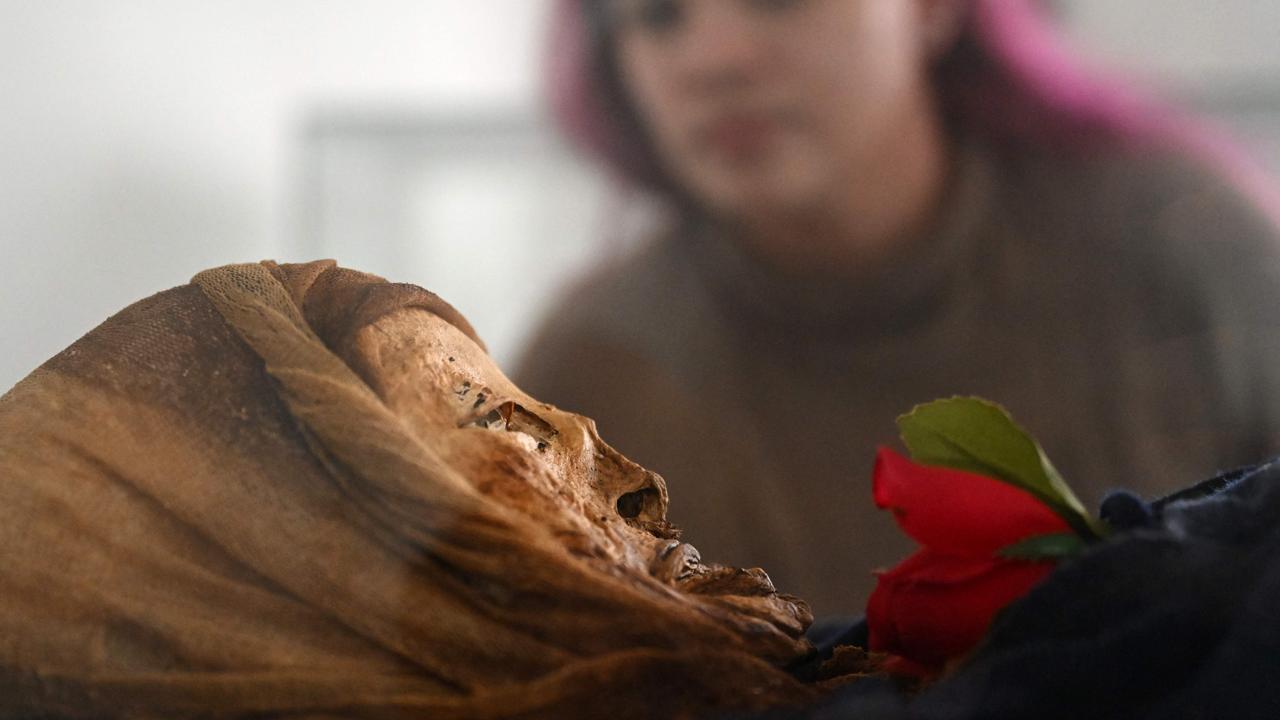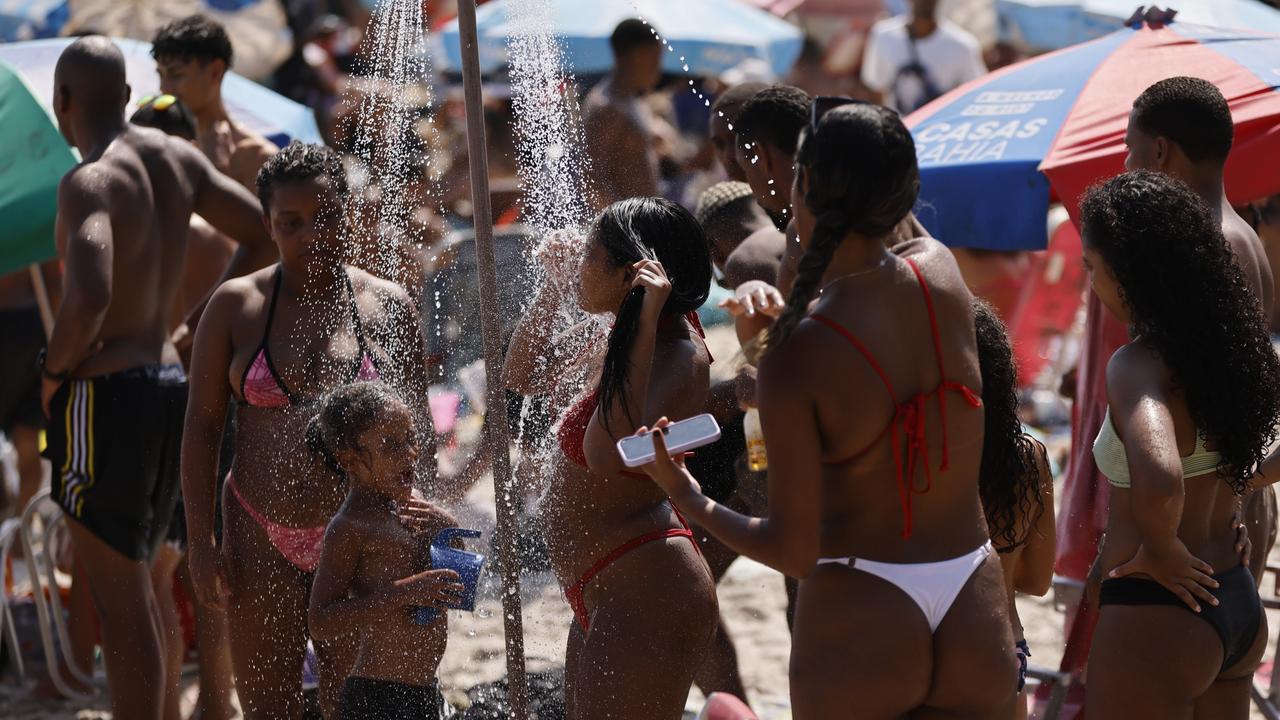Eric Campbell goes undercover inside dangerous Venezuela for Foreign Correspondent
IT’S a dangerous and desperate country hostile to the media. So Eric Campbell was forced to go undercover to find out how bad things are getting in Venezuela.
JOURNALIST Eric Campbell has been in a few hairy situations, but interviewing a heavily armed gang of kidnappers, while working undercover in one of the world’s most dangerous countries, could be right up there with the worst.
Campbell was in Venezuela, formerly Latin America’s wealthiest country, but where the great socialist dream had crumbled into extreme corruption, poverty and violence.
He shouldn’t even have been there, at least not as a reporter. Defying a strict media ban, he and producer Matt Davis pretended to be surfing tourists to get inside the desperate and dysfunctional country for an investigation that airs on the ABC’s Foreign Correspondent tonight.
“The advice we got was to not even bother applying [for a filming permit] officially, because if you do, you’ll be black-listed and won’t be able to get in anyway. So we decided the only way to tell the story was to go in posing as a couple of surfing mates, with very small cameras and a surfboard for cover,” Campbell told news.com.au.
“Matt is a surfer from Maroubra [in eastern Sydney] but I couldn’t surf to save my life, so I had to pretend I knew all the lingo and stand in the background while Matt did all the talking.”
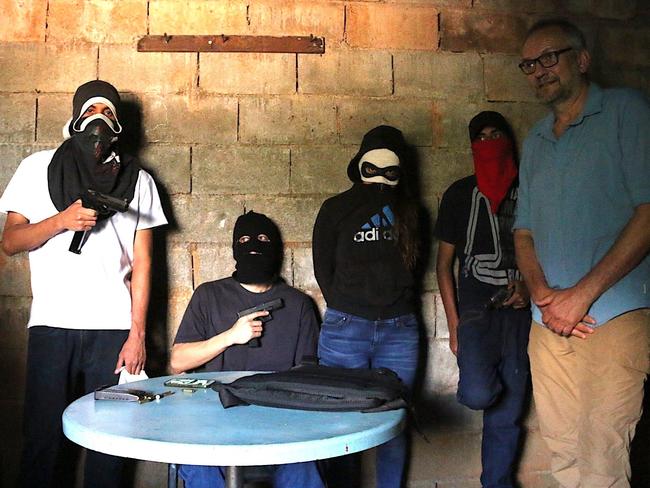
Once inside Venezuela, Campbell found a country terrorised by murderous gangs, where pitiful food rations forced people to eat garbage, and where essential items were in such short supply, people used cash as toilet paper because it was cheaper. “The bolivar is now so worthless you need a sack of money to pay a bill,” Campbell said.
And while getting into the country was risky, working as a journalist in its capital, Caracas, was even riskier. During Campbell’s time there, an American journalist was arrested and interrogated for days by Venezuelan authorities as part of a crackdown on unauthorised foreign media.
“We couldn’t do anything officially, and when we were filming we had to be very quick on the street because even with small cameras, you can be spotted and arrested very quickly,” Campbell said.
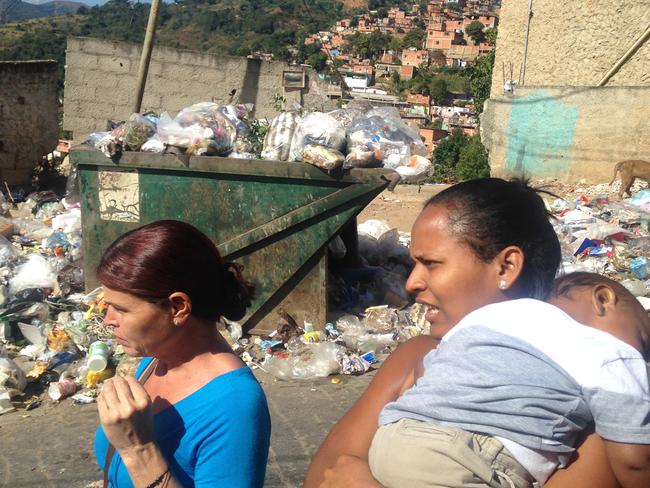
“There are so many police and soldiers and national guards. There’s also this paramilitary group called colectivos — it’s a civilian militia to defend the revolution — and these were the really nasty ones. If they were around we couldn’t risk filming at all.”
Campbell said he and Davis almost thought the jig was up, once, while filming and interviewing a local man.
“We were stopped by police and fortunately the man was a socialist diehard and he had the eyes of [former Venezuelan president] Hugo Chavez tattooed on his forehead,” he said.
“We told the police we were socialist filmmakers looking at the strong support for the revolution. They let us go without asking for our filming permits, otherwise we would have been arrested.”
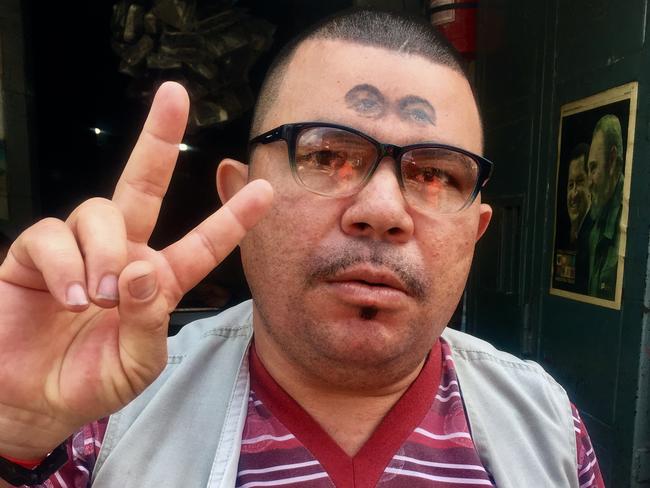
An even more heart-stopping moment came when Campbell and Davis met a gang of “kidnappers, murderers and drug dealers” who’d agreed via a third party to be interviewed.
After telling as many people as they could where they were going, the pair were led by gunpoint into a concrete hostage room, where they were frisked and forced to turn off their phones before the interview.
“There were six guys and two women wearing balaclavas and holding enormous guns, which they held throughout the interview,” Campbell said.
“It was like being in a Quentin Tarantino movie. I’ve covered lots of wars with soldiers or rebels with guns but this is the first time the guns were held the entire time.
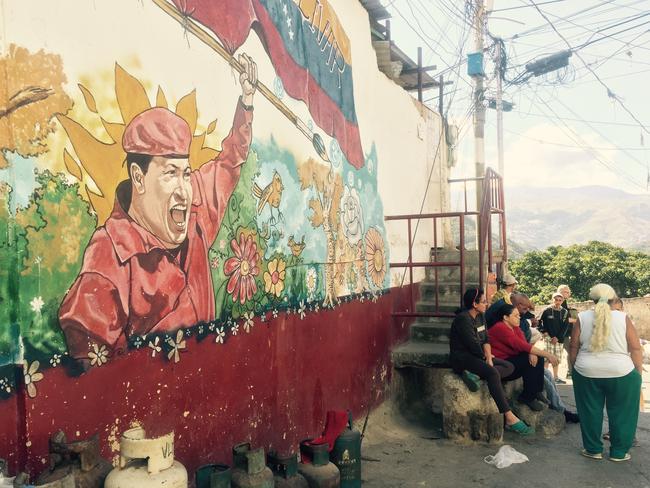
“It was a little bit tense, but to break the ice, Matt — who as I said was a very keen surfer — asked them if they surfed. The gang leader smiled and held up his iPhone with a picture of a surfboard.
“From then it was fine. They started saying, ‘Man, if you want to go to the beach we’ll take you, do you want to smoke some joints with us?’. We said no, but we sort of parted as friends.”
It got dicey again when Campbell’s driver, who had been waiting outside, got a sudden bout of food poisoning and had to drive off in search of a toilet, leaving the Australians stranded inside the bunker until he came back.
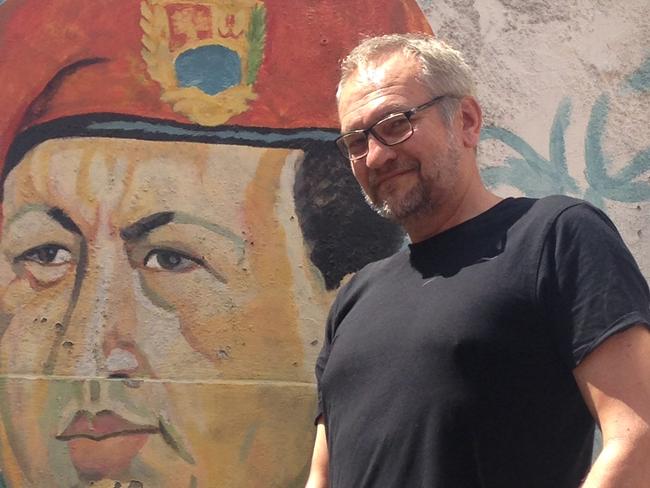
“I asked if we could wait out on the street and the interpreter said it was too dangerous,” Campbell said. “It was safer to be inside with the kidnapping gang than it was to be on the street as white foreigners.”
Despite the dangers, Campbell found Venezuelan people were very willing to talk on camera about how bad life had become.
Campbell had previously visited Venezuela in 2009, before the media ban, when socialist hero Chavez was in power. Chavez’s focus on nationalising private industry and his neglect of oil infrastructure hinted at problems to come, but the record price of oil kept things relatively afloat.
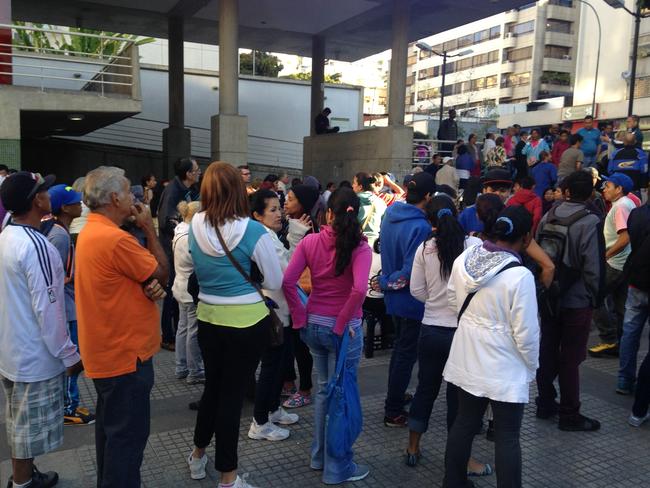
Since his death, global oil prices have plummeted and the economy has continued to unravel under the unpopular current leader, Nicolas Maduro. Campbell said Venezuela was “literally falling apart”.
“This is a country with more oil than Saudi Arabia and yet you see people searching through piles of garbage for food, and people surviving by lining up once a week for their weekly food rations, which may only be two small bags of flour,” he said. “They can’t get medicine. Mothers can’t get nappies.
“It’s also incredibly violent. We were told not to walk down the street unless we had to and not to go out at night. I was once using my iPhone at the hotel entrance and the translator yelled out and said, ‘Put that away, if people see you’ve got a phone they’ll kill you for that’.
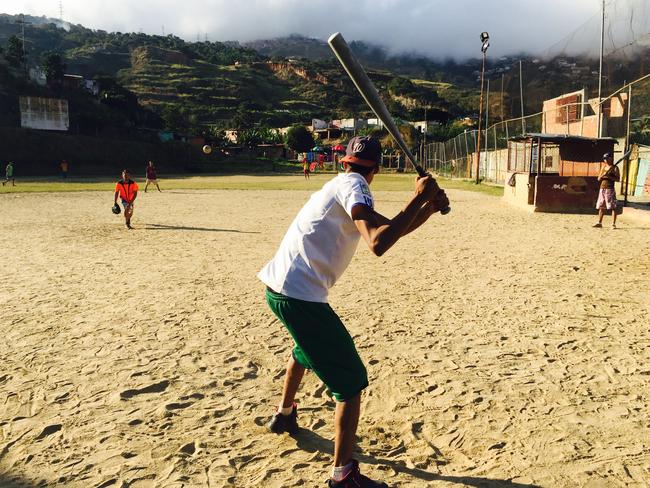
“People were desperate to talk because they’re living in absolutely misery and they want to world to know about it. But their government won’t let the world hear about it.”
So was the risk of going undercover in Venezuela, to tell the story, worth it?
“I hope so,” Campbell said.
“There are some countries in the world where journalism is illegal. And as a foreign correspondent, my feeling is they’re the countries we have to go to, whenever we can.”
Eric Campbell’s report, Venezuela Undercover, airs on Foreign Correspondent at 9.30pm on Tuesday on ABC and ABC iview.



